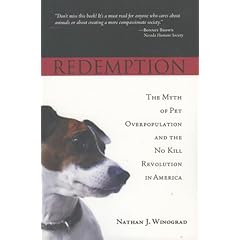Gave a short talk on the work of the local branch to Anglia Ruskin Student Animal Welfare Society and the validity of the Freedom Food scheme came up in the Q&A session afterwards. Looking back on this, I don't think I got across the significance of FF as a source of advice on best practice for farmers who genuinely want to improve animal welfare on their farms. The students mainly seemed to view it as a mechanism for checking up on farmers and catching them out (and universally wanted to press for more frequent inspections).
The audit aspect of any welfare acreditation scheme obviously is important (otherwise no-one knows whether farmers are complying with the standards and deserve premium prices), but I don't think the average person stops to consider the importance of the science and knowledge that goes into the development of standards in the first instance.
One of the most valuable (and comparatively little-known) features of Freedom Food is the iterative process by which standards are devised; studied in actual commercial use and then revised on the basis of the findings from those studies.
There's some information about this on the Bristol University Veterinary science website, and also the EU Welfare Quality site. The Guardian has an article relating just to the Freedom food standards for broiler chickens which illustrates why annual inspections might not be sufficient to catch individual acts of cruelty or indiference by workers, but would verify the farm's systems and processes.
The audit aspect of any welfare acreditation scheme obviously is important (otherwise no-one knows whether farmers are complying with the standards and deserve premium prices), but I don't think the average person stops to consider the importance of the science and knowledge that goes into the development of standards in the first instance.
One of the most valuable (and comparatively little-known) features of Freedom Food is the iterative process by which standards are devised; studied in actual commercial use and then revised on the basis of the findings from those studies.
There's some information about this on the Bristol University Veterinary science website, and also the EU Welfare Quality site. The Guardian has an article relating just to the Freedom food standards for broiler chickens which illustrates why annual inspections might not be sufficient to catch individual acts of cruelty or indiference by workers, but would verify the farm's systems and processes.
Further thoughts
I suppose what I'm getting at partly is that some things (e.g. employee behaviour) do need spot checks, but a lot of the things that go towards improved welfare on farms aren't really likely to be whisked away once the assessor's back is turned. Buildings, for example don't need more than annual checks; and some aspects of good practice can be assessed by requiring record-keeping. Records might be forged, but if health records include veterinary visits, vaccination etc. deviation from the required standards would require collusion from an assortment of professional people with a reputation to lose.
More thoughts
Freedom Food is the only welfare-specific assurance/quality label scheme in Europe, and it was started before the similar schemes in the US.
Bristol University has some example assessor recording forms and flow charts which illustrate what is being checked; it's not simply a matter of an inspector turning up and looking for examples of cruelty.
I think there are important parallels with Nathan Winograd's thoughts on how attitudes to humans can make animal advocates less effective at helping animals. If we assume that most other people are nasty, uncaring individuals who can never be trusted we end up alienating potential allies, wasting resources and ultimately failing to achieve progress. If we assume that other people are basically trustworthy and want to avoid cruelty, we may sometimes be deceived, but overall we'll make better gains even if we sometimes have to accept that not everyone shares our views about what constitutes good animal welfare.
